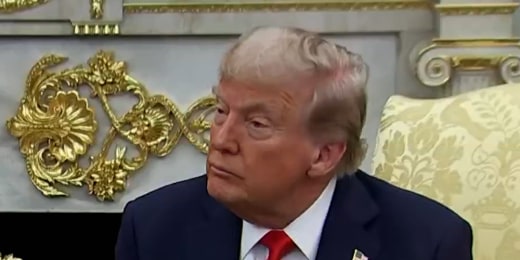Trump Administration Appeals Tariff Ruling to U.S. Supreme Court

U.S. President Donald Trump’s administration has asked the Supreme Court to review a lower court decision striking down most of his tariff policies, a central part of his trade and economic agenda.
The Justice Department filed the appeal on August 29 after the U.S. Court of Appeals for the Federal Circuit ruled that Trump exceeded his authority under the International Emergency Economic Powers Act (IEEPA). The court determined that the law, intended for national emergencies, did not grant the president broad power to impose tariffs.
Solicitor General D. John Sauer urged the Supreme Court to fast-track consideration of the case. The government asked the justices to decide whether to take up the matter by September 10 and to hear arguments in November.
“The stakes in this case could not be higher,” Sauer wrote in the filing, emphasizing that the administration viewed tariffs as vital for national security and economic stability.
The ruling marks a significant challenge to Trump’s strategy of using tariffs as leverage in trade negotiations. Trump imposed sweeping tariffs in February and April under IEEPA, framing them as measures to counter trade deficits and restrict fentanyl trafficking from China, Canada, and Mexico. Unlike prior presidents, Trump used IEEPA not to sanction foreign adversaries but to impose duties on trade partners.
Critics, including small businesses and state governments, argued that the tariffs were unlawful. A coalition of importers and 12 states, mostly governed by Democrats, contended that the Constitution reserves tariff authority for Congress. They said Trump’s interpretation of IEEPA violated both legislative intent and the Supreme Court’s “major questions” doctrine, which requires explicit congressional approval for executive actions of broad economic impact.
The Federal Circuit agreed, ruling 7–4 that Trump had overstepped his authority. “It seems unlikely that Congress intended, in enacting IEEPA, to depart from its past practice and grant the President unlimited authority to impose tariffs,” the court said.
Lawyers for small businesses welcomed the appellate ruling but did not oppose the Supreme Court’s review. Jeffrey Schwab of the Liberty Justice Center said, “These unlawful tariffs are inflicting serious harm on small businesses and jeopardizing their survival. We hope for a prompt resolution.”
Treasury Secretary Scott Bessent, supporting the administration’s appeal, warned that the lower court decision undermined Trump’s ability to conduct diplomacy and protect U.S. economic interests.
Trump has made tariffs a cornerstone of his economic and foreign policy, arguing they are necessary to balance trade, strengthen domestic industries, and apply pressure on trading partners. His approach has strained relations with allies, created market volatility, and fueled global economic uncertainty.
At least eight lawsuits have been filed against Trump’s tariff policies, including challenges from California and other states. Earlier rulings from the U.S. Court of International Trade and a separate Washington court also rejected the tariffs under IEEPA.
The Supreme Court’s decision on whether to take up the case will shape the trajectory of Trump’s broader economic agenda. The outcome may also affect related disputes, including ongoing legal challenges to the independence of the Federal Reserve, setting up a potential confrontation between the executive and judiciary over the scope of presidential economic powers.
Read More: LAD REPORTING




